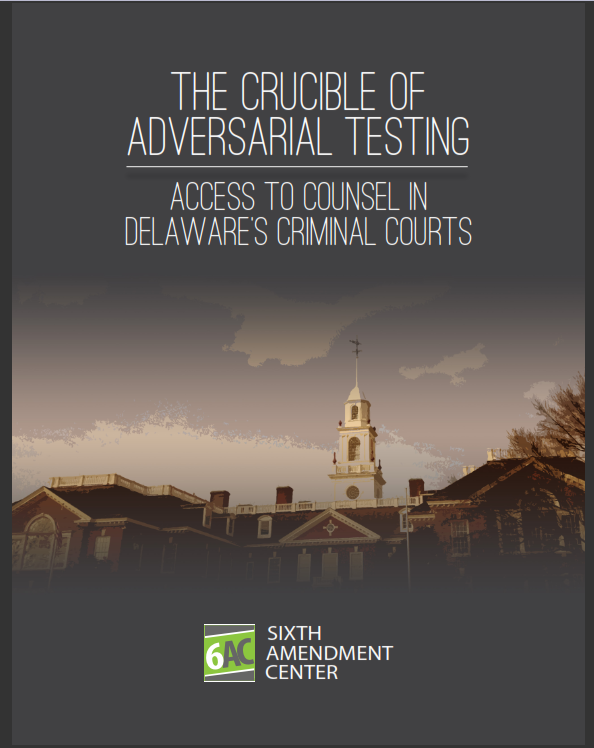Focus Policy Blog

Sixth Amendment Disparities in Delaware Criminal Courts, Part One
The Sixth Amendment Center published a recent report which examines the disparate access to counsel in Delaware criminal courts. The study researched how equally the sixth amendment right to counsel applies. Part one of the analysis involved determining whether Delaware meets the American Bar Association’s Ten Principles of a Public Defense Delivery System, which was created as a guide to policy makers for implementing steps necessary for the criminal justice system to provide criminal defendants with high level and efficient legal representation.
The first part of the report analyzes the ABA’s third principle, which is a criminal defendant’s constitutional right to early appointment of counsel. In Delaware this applies to proceedings in the Justice of the Peace Court where the beginning of the justice system process. Although defendants are told that they have a right to counsel, defendants usually do not meet with counsel until they are actually in jail. So, if a defendant is not required to be in jail before the trial starts, he does not receive the benefit of meeting with counsel as soon as possible. Also, in Delaware Family Court, if a child does not request an interview with the public defender’s office prior to his arraignment, the child is automatically named as a pro se litigant, with no representation by legal counsel.
Counsel representation is critical for defendants to fully understand their rights and the implications of the court proceedings they face. For example, a defendant who represents himself or who has not met with counsel as a result of not being kept in jail before the trial might accept a plea at the preliminary hearing to avoid the increased court fees that come with proceeding to trial without accepting a plea. A court-appointed attorney would be able to advise the defendant of his options and if the defendant could not afford to hire an attorney.
The study also finds a high rate of incidents where critical stages of court proceedings go on before a defendant even declares whether or not he waives his right to counsel.
Unfortunately, since minorities are involved in the criminal justice system at disproportionately higher rates than whites, disparate access to counsel has particularly unfortunate implications for communities of color.
Patrice Garnette, Joint Center Graduate Scholar, The George Washington University Law School

